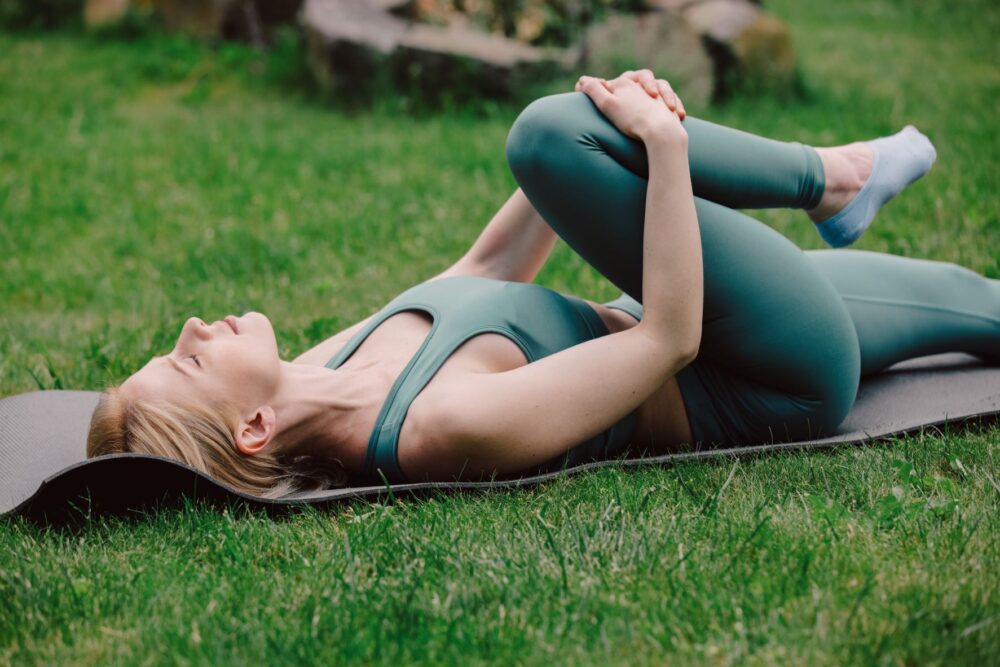Are you looking to make positive changes in your life but don’t know where to start? Look no further than meditation! It’s no secret that meditation has a plethora of amazing benefits, and this article will introduce you to 6 basic meditation practice tips that can help you unlock your inner potential and lead a more fulfilling life. Read on to discover how meditation can help you make positive changes in your life!
Here are some basic tips for starting a meditation practice:

Find a comfortable place
Find a comfortable place to sit down. In this case, a cushion can provide extra support and comfort – especially if you’re planning to do this for a longer time. This step may be small, but it makes a huge difference if you have discomfort or pain when sitting on the floor or for those who have a hard time maintaining good posture. Why?
Well, using a cushion can help to elevate the hips and align the spine, which can be beneficial for maintaining good posture and reducing strain on the lower back. Some people find that using a cushion helps them to stay more focused during meditation because they are more comfortable and less distracted by physical discomfort.
Don’t get distracted!
Speaking from personal experience, I can tell you this step is difficult as a beginner. However, it’s a must if you want to meditate properly!
Here’s what I did: the first step is to choose a quiet, private place to meditate. This could be a dedicated meditation room or a quiet corner of your home. Let others know that you’ll be meditating so they don’t interrupt this special moment.
If you have pets, consider setting them up in a separate room or area where they won’t be able to disturb you. Don’t forget that earplugs or headphones can block out external noise, so they’re a no-no!
Can’t seem to focus? Consider using a guided meditation app or a meditation timer to help you stay focused and on track.
If you do get disturbed during your meditation, try to let it go and focus on your breath or the present moment again. Remember that distractions are a normal part of the meditation process and they can be opportunities to practice acceptance and letting go.
Remember that meditation is a practice, and it can take time and effort to develop a regular meditation habit. Be patient with yourself and try not to focus on the outcome of your meditation sessions. Trust me: the more you practice, the better the results!

Choose a Comfortable Position
Note that this is different from finding a comfortable place! Why? To begin with, the position of the body during meditation has a huge influence on your comfort and relaxation. The right posture will keep you in a good state of mind too – pretty cool, right?
Here are a few things I want to share with you: Some common positions include sitting in a chair with the feet planted firmly on the ground. Of course, you can also try to sit on a cushion or mat with your legs crossed. If these don’t work the magic, just lay down and start with that.
Once you understand it, you should find a position that allows you to maintain an upright posture. Experts say your spine should be straight and your head and neck in alignment. This can help to prevent discomfort and distractions during meditation.
It’s also important to choose a position that allows you to remain comfortable and still for an extended period of time, as this can help to minimize physical distractions and promote a sense of inner calm and focus.
Focus Your Attention on Your Breath
Want to meditate correctly? Then you have to learn how to breathe. In fact, one of the best ways you can use breathing in meditation is to improve your focus.
Simply put, this habit can be helpful when your mind is prone to wandering or becoming agitated, as focusing on the breath can help to bring you back to the present moment and cultivate a sense of calm and clarity.
By taking slow, deep breaths, you can activate your body’s natural relaxation process. As you do this, you’ll feel the magic working on your body too by reducing tension and stress.
Still not convinced? Experts say that breathing can also be used as a tool for self-inquiry in meditation. When you focus on your breathing, you can understand yourself better emotional and physical state better. In fact, you may even discover what bothers you – both mentally and physically.
In the long run, you can learn to regulate your emotions and (why not) feel some well-deserved inner peace too!

Discover the Best Amount of Time Allocated for Meditation that Fits Your Needs
There is no one-size-fits-all answer to how much time you should spend on basic meditation daily. According to experts, this depends on your goals, experience, and (of course!) your free time.
However, I can give you a rule of thumb: it’s often recommended to start with short meditation sessions and gradually increase the length of your practice. This way, you can implement this healthy habit in your life easier.
For example, you might begin with a 5-10 minute meditation session, and then gradually increase the length of your practice to 20-30 minutes or more as you feel comfortable. Remember: don’t stress yourself over it! No matter how much you achieve, it’ll get better over time, I promise.
It’s also important to remember that the quality of your meditation practice is often more important than how much time you spend doing it. Rather than trying to meditate for a certain amount of time each day, you should focus on developing a consistent and regular practice – and to make the most of the time that you do spend in meditation.
This might involve setting aside a dedicated time and place for meditation each day, creating a supportive environment, and being present and mindful during your practice.
Don’t Worry About “Doing It Right”
It’s important to remember that meditation is, after all, a natural human capacity, and there is no “right” or “wrong” way to actually do it. In the end, the most important thing for you is to find a method that works for YOUR lifestyle.
Some common mistakes that people make when they are starting to meditate include:
- Setting unrealistic goals or expectations: just like other habits, meditation takes time and consistent practice too. It’s important to approach meditation with an open and curious mind rather than trying to achieve specific outcomes or reach for perfection!
- Comparing yourself to others: It’s natural to be curious about how your meditation practice compares to others, but everyone’s experience of meditation is unique. Rather than comparing yourself to others, try to focus on your own practice and the benefits that it brings to your life.
- Becoming too attached to specific techniques or practices: While certain techniques or practices can be helpful, it’s important to remember there are many different approaches to meditation, and what works for one person may not work for another. It can be helpful to be willing to explore different techniques to see what works best for you.
In other words, the key to a successful meditation practice is to approach it with an open, curious, and non-judgmental mindset and to be willing to experiment and discover the best option for your needs. Pretty cool, right?
Also find out: How to Find The Best Meditation Coach: 8 Tips









